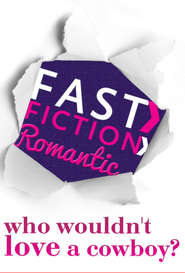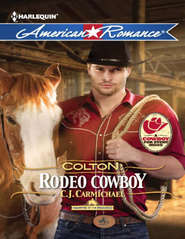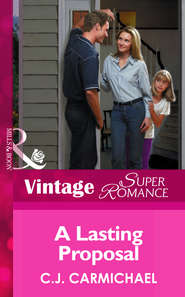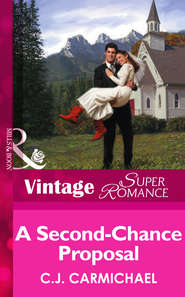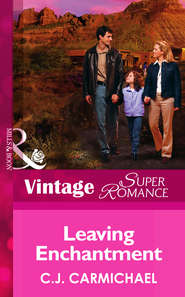По всем вопросам обращайтесь на: info@litportal.ru
(©) 2003-2024.
✖
Small-Town Girl
Автор
Год написания книги
2018
Настройки чтения
Размер шрифта
Высота строк
Поля
Ben. She had to help Ben. She’d promised. She was his mother, for God’s sake.
Facts. She needed facts. Sitting on the cold floor, her head against the cubicle wall, Julie dug her cell phone out of her purse.
AT JULIE’S REQUEST, Gina found several books at the public library and rushed them to the hospital. She gave Julie a sympathetic hug, but later Julie couldn’t remember anything the younger woman had said. She took the books to the waiting room by the ICU, where Ben had just been transferred, and started to read.
What she learned wasn’t reassuring. Statistically, patients with severe head trauma, in very deep comas, had a fifty-percent survival rate. A third of those patients who recovered from significant brain injury developed emotional or behavioral problems as a result.
Julie confronted those difficult facts and read grimly on. She learned the difference between brain death and coma. In brain death the actual neuron cells were destroyed, offering no hope of recovery. But in Ben’s case, those cells were intact. Just not functioning normally.
Hope. She needed hope. And here was something else she could cling to. There were cases in which brain injury patients originally considered hopeless recovered fully.
Just as Ben was going to do. He had to. Julie shut the book firmly, knowing she could face Ben now that she knew he had a real chance. Her boy would survive.
THE POLICE RAN THROUGH the particulars of the accident with Julie and Russell. A drunk driver had rear-ended the van Ben had been traveling in. It still wasn’t clear whether Ben hadn’t been wearing his seat belt or had fastened it incorrectly. At any rate, when the Caravan tumbled off the road, Ben crashed through a side window, to land on a grassy boulevard several yards away. Ben’s best friend’s mother, who’d been driving the van, had walked from the accident. As had her son, Jeff, and the drunk driver, though not in a very straight line.
Only Ben had been hurt.
As she stood sentry at her son’s bedside Julie made herself visualize the accident, imagining she’d been there and what she might have seen. She did this to herself over and over, the way she probed a canker sore, or tore at a hangnail.
In her mind she saw the van fly off the road and flip over. Her son catapulted from the driver-side passenger window, then hitting the boulevard next to a video store. A size-three Converse running shoe, tan brown with dirt-gray laces, kept flying in the air. The untied laces—Ben would never heed her admonishments to do them up—streamed through the air like ribbons.
In these constant mental replays, the shoe never landed. Not the way Ben had, in a still heap of mangled boy against lush green grass. No, the manufactured combination of rubber, canvas and cotton kept soaring, like a kite, or one of the seagulls patrolling Vancouver’s inner harbor. A boy’s sneaker. Size three. Laces untied.
Hospital staff had included the shoe in the bag of Ben’s belongings she was given to take home from the hospital. Good as new, almost.
The one that had stayed on Ben’s foot had been ruined.
BY THE END OF THE FIRST DAY, Ben’s vital signs were stabilized, but his condition remained listed as critical. The second day he began breathing on his own and the ventilator was disconnected. Poised for their son’s return to consciousness, Julie and Russell hovered over Ben for the rest of that day and the next. Yet nothing happened.
“What does this mean?” Julie pleaded with the doctor for an explanation. But he had no answers to give.
Julie learned how the mind became numbed by despair. She and Russell began to take turns at Ben’s bedside, unable to talk any more of their fears or hopes. Each hour that ticked by became another mark against them.
“Hey, Ben, want to listen to some music?” On the morning of the fourth day Russell brought a tape machine from home, along with some Disney tapes. Soon a cheerful melody from The Lion King bounced life into the small private room.
The doctors said hearing was often the first sense to return. Julie leaned over her son, searching his face for the tiniest reaction to the familiar tune. A smile, a twitch, a blink of his eye.
Nothing.
“Oh, Ben.” She set the Harry Potter book she’d been reading aloud onto her lap. “Do you remember how much you enjoyed The Lion King the first time you saw it?” She’d bought him the video for Christmas when he was six. He must have watched it once a day for the next two weeks. Soon he’d had all the lyrics to every song memorized.
“You and your friends danced around the family room, singing at the top of your lungs….” She carried the memory forward, speaking for the sake of her son, hoping something in her voice might reach him and pull him back.
“That Halloween you dressed up as Simba to go trick-or-treating.” Russell, sitting in a chair next to her, picked up the conversation and kept it moving. With closed eyes, Julie heard the drone of his voice, but no longer the individual words or their meanings.
She was so tired. And every day, hope was harder to grasp.
“Remember how much you love purple Life Savers? You always open the package and search…”
Her husband’s voice mingled with the tune from the tape machine. Julie leaned her head against the wall behind her. Her fingers relaxed their grip on Ben’s hand. For a moment she felt the blissful lure of oblivion.
Then something crashed to the floor. She jerked upright at the noise. The book had fallen off her lap.
“Julie?”
“I’m sorry,” she apologized to Russell. Then she realized he wasn’t looking at her, but at Ben.
“Did you see that?” Russell rushed to their son’s side. “Ben started at the loud noise. I’m sure of it.” He took the child’s flaccid hand.
“Can you hear me, Ben? Your mother and I are with you. We’ve been here all the time. You’re going to be okay, son. We love you, Ben.”
For the first time since the accident, Ben’s features rearranged themselves. The grimace could have been the result of pain or confusion; it was impossible to tell. With hope fluttering in her chest, Julie signaled for a nurse, all the while watching desperately for another sign her son was finally waking up. But nothing else happened for the next interminable hour.
First the nurse on duty, then Dr. Assad questioned Julie and Russell carefully about what they had seen. Both held out cautious hope more improvements would follow soon.
And they did. That evening Ben’s eyes fluttered. At one point he even opened them briefly. The next day he started muttering, flailing his arms. Russell kept playing music; Julie continued reading. On the fifth day of his coma, Ben finally spoke.
“I’m so tired…of that song.”
In an instant, every tightly held muscle in Julie’s body relaxed. Tears flowed down her cheeks, splashing unheeded onto her blouse. Her hands trembled as she put one on her husband’s shoulder; the other, on her son’s head.
Ben was back.
CHAPTER TWO
Four months later
AT THE LIVING ROOM WINDOW Julie played with the gold band of her watch, pushing it back and forth over her wrist bone. Her laptop computer sat open on the ottoman next to the armchair where she’d been editing a column for next month’s edition of West Coast Homes.
More honestly, trying to edit.
She couldn’t concentrate. It was four months today, and she knew she ought to be grateful. Ben was alive, better, and life in the Matthew residence had returned to normal. Well, sort of normal. She and Russell were back at work part-time and Ben’s rehab, as of today, was over. Soon Ben would be back in school, and their lives would resume their usual, predictable rhythms.
Normalcy. It was all she had craved since that dreadful day.
She twisted her watch again, then adjusted the blinds to the perfect angle. She fluffed the pillows on her antique love seat, then ran a hand over the polished ebony surface of the grand piano. Not so much as a flake of dust clung to her fingers.
“Should we wake him, Russell?” When Ben’s naps went over an hour, she became nervous. She’d already checked on him and he appeared fine. But she couldn’t contain her irrational fear—what if he didn’t wake up this time? Or what if he suffered a seizure. His medication was supposed to prevent them, but what if one happened anyway?
Russell surfaced from the textbook on his lap, Contemporary Literary Criticism. He removed his dark-framed glasses in order to check the time on the clock above the mantel.
A sweet memory snuck up on her. The first time they’d met, in the University of British Columbia library, she’d asked him for the time. He’d removed his glasses then, too. His mop of brownish-red hair had desperately needed a trim, and she’d longed to reach over and tug one of those curls as he’d glanced at the clock on the wall.
“It’s almost noon,” he’d said in answer to her question. Then he’d asked, “You’re English?”
“From London. Islington.” Her family had been in Canada for only a few months and already she’d found her accent an asset in drawing the attention of men. “And rather hungry at the moment.”
“May I offer tea? Cucumber sandwiches?” He’d mimicked her, but not unkindly. And as he spoke, he’d snapped shut his textbook and risen from his chair. She remembered thinking he had the warmest smile she’d ever seen.






